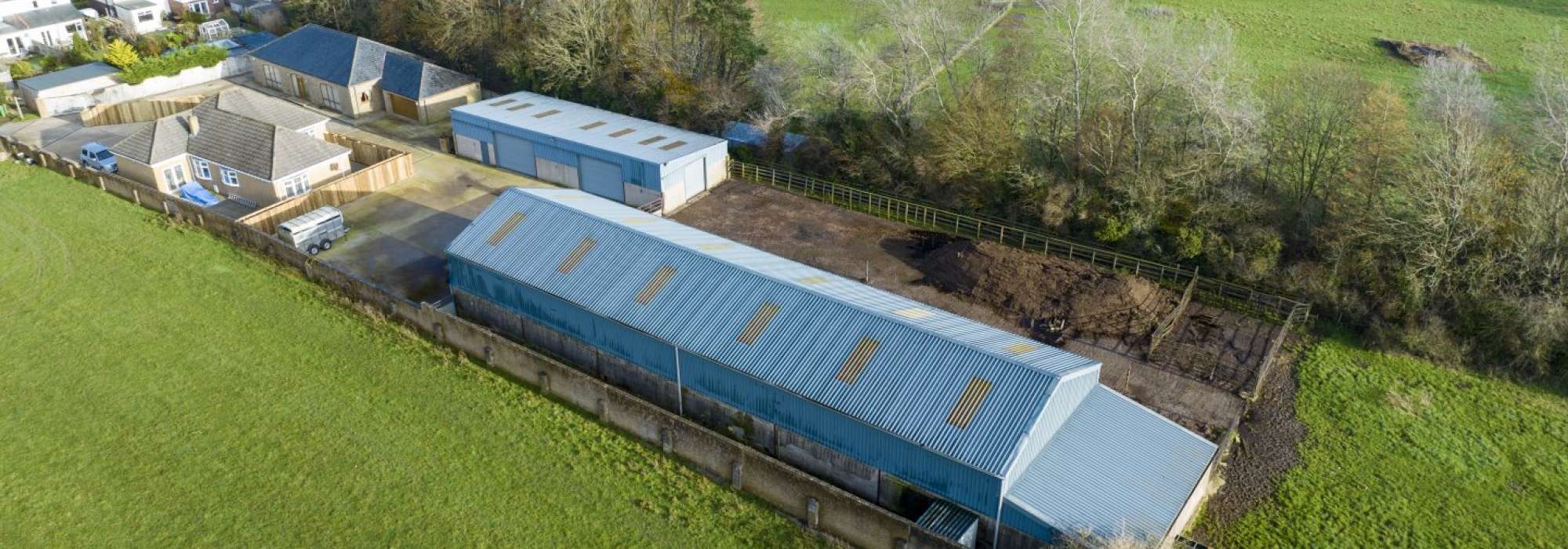Festive Planning for Your Family’s Farming Future
Death is not something most of us like to talk about, or even think about. But while there is no wish to put a dampener on the forthcoming festivities, as farming families come together to celebrate Christmas and see in the New Year, this is an ideal time to think about the future and what happens when you are gone.
I will be discussing the best ways in which to plan:
Forward planning is especially important if you have an Agricultural Holdings Act 1986 tenancy. Most people know that these include succession rights for a close relative to succeed to the tenancy, up to two times, but it’s not automatic. The successor has to meet certain ‘eligibility’ and ‘suitability’ tests. There are three tests of eligibility:
- The ‘close relationship’ test (essentially must be a spouse, sibling or child)
- The ‘principle source of livelihood’ test
- The ‘commercial unit occupation’ test.
The principle source of livelihood test means that the successor must have obtained his or her only or principle source of income from agricultural work on the holding in question, or a commercial unit of which it forms part, for five out of the seven previous years. This can be a continuous five year period, or two separate periods totalling five years. It is possible to only materially comply with the principle source of livelihood test at the time the application is made.
The commercial unit test requires that the successor is not in occupation of another commercial unit of agricultural land at the time the application is made. The definition of ‘commercial unit’ is that it is capable of producing a net annual income not less than the average earnings of two full time agricultural workers. This means that if the potential successor owns or rents other land which meets the definition of a commercial unit, they will not be eligible.
Whether an applicant is suitable is more subjective. To determine this, the Agricultural Lands Tribunal (ALT) will take into account the individual’s qualifications, training and experience, age, health, and financial standing, as well as the landlord’s view.
It is therefore worthwhile considering at an early stage whether the person you want to succeed to the tenancy will meet the criteria and if not, whether you can make adjustments to the farm business to improve their chances of doing so.
There are also very strict procedures and time limits governing application for succession in the event of the tenant’s death. An application must be made to the ALT within three months of the date of death. It is not enough to notify the landlord of the death and that you want to take on the tenancy. If no application is made to the ALT within three months and the landlord serves a notice to quit within three months of being notified of the death, this is incontestable, and the tenancy will end at the expiration of the notice.
In the immediate aftermath of someone dying, there is always a lot of paperwork to sort out, as well as dealing with the feelings of grief, so making an application to the ALT may well be missed. However, you don’t have to wait until the tenant dies. It is possible to make an application before then, on the grounds that the tenant is ‘retiring’ if the tenant is at least 65 years old or incapable of farming due to mental or physical incapacity which is likely to be permanent. In this situation, the tenant has to give the landlord notice of the nominated successor at least 12 months prior to the term date of the tenancy, and the nominated successor then applies to the ALT. It is still necessary to meet the eligibility and suitability criteria.
It is also possible to agree a succession without a formal application to the ALT, if the landlord is willing to do so. If the successor obviously meets the criteria for succession, it’s most likely in everyone’s interest to deal with the transfer of the tenancy whilst the tenant is still living and of sound mind, and the successor is still reasonably young. Do seek professional advice, however, as succession agreements need to be in a prescribed form to ensure that they still comply with the terms of the Agricultural Holdings Act 1986.
In addition to considering tenancy matters, there are some other things you can do which will help your loved ones enormously when the time comes:
- Make a will
- Appoint Executors and ensure others know who to contact in the event of your death
- Consider appointing a Power of Attorney in the event that you are incapacitated
- Assess your worth
- Seek professional tax advice
An up-to-date valuation of your property assets will help to determine how much inheritance tax might be payable. Don’t assume that the whole farm will obtain Agricultural Property Relief. The farmhouse and buildings have to be ‘of a character appropriate’ and if not, the relief may only apply to part of its value. The availability of Agricultural Property Relief and Business Property Relief will also be impacted by any lettings. It may be possible to make adjustments to ownership of assets in advance which will result in tax savings.
So, for your own peace of mind and your family’s sake, spare a minute this Christmas to consider whether succession and tax planning should be one of your New Year’s resolution.
To discuss in more detail, you can contact Rachel on 01539 721375 or at rachel.bagshaw@hhlandestates.co.uk.

